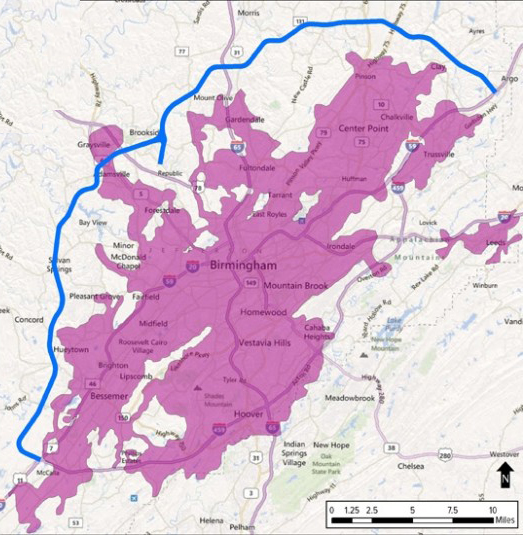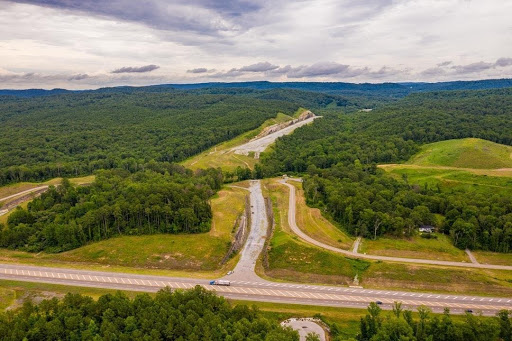In this year’s installment of its annual Highway Boondoggles report, U.S. PIRG Education Fund and Frontier Group warn of billions of dollars in proposed spending on unnecessary highway projects that would divide our communities, deprive transit of scarce funds, and pollute our air and water. Below is the fourth of seven installments detailing these harmful projects.

The Alabama Department of Transportation is pushing forward with the $5.3-billion Birmingham Northern Beltline, a 52-mile, six-lane expressway connecting I-59 northeast and southwest of Birmingham. The project is almost entirely reliant on intermittent and insufficient federal funding, scheduled to take at least 40 years to complete, and, if built, will threaten damage to two watersheds that are important sources of drinking water for Birmingham.
The Beltline project relies on intermittent federal funding, raising the specter of a highway project that is not only expensive and environmentally damaging, but is also never finished. The BNB is funded solely by the federal Appalachian Development Highway System , which pays for roadways throughout Appalachia. To date, Alabama policymakers have declined to provide state funding for the project, which suggests that the project is not a high priority for state transportation needs. Between 2014 and 2016, Alabama DOT completed a 1.3-mile grade and drain project as the first phase of the Beltline, using all of the funding available at the time, and then paused work when federal funding for the highway system was not renewed. ADHS recently received funding again, but allocated just $30 million to the Beltline, a tiny fraction of the multibillion-dollar project cost. In 2014, the estimated completion year of the project was 2054, not accounting for the most recent four-year pause, nor for any future stoppages in funding.

If it is built, the Beltline's construction, operation and the development it spurs would degrade Birmingham’s water quality, forests and wetlands. According to the Southern Environmental Law Center and the Black Warrior Riverkeepers, the Beltline would “cross and permanently alter Black Warrior and Cahaba river tributaries in 90 places and wetlands in 35 places” and will “destroy 3,078 football fields’ worth of forest.” The Cahaba and Black Warrior watersheds are two of the major sources of drinking water for residents of Birmingham, and construction or development in the watersheds increases the risks of damage to streams, chemical or gasoline spills and stormwater runoff pollution. The Regional Planning Commission of Greater Birmingham, which receives funding from local governments to provide planning and economic development services for central Alabama, notes that the “level of potential environmental impacts may be significant.”
The Beltline’s project website claims the project will spur economic development and will address “future traffic growth,” but analyses of the project have questioned whether the project would actually bring such benefits. One study from the Ochs Center for Metropolitan Studies determined that the project’s economic impacts had been “overstated,” in part because “if the [BNB] corridor gains jobs (or employers) at the expense of other locations within Jefferson County, those jobs are not net new jobs for the county or the region.” And the planning commission estimates that the Beltline would accomplish little in terms of congestion relief for other roadways, only taking between 1 and 3 percent of the vehicles that currently travel on I-59 and I-20 through downtown Birmingham.






